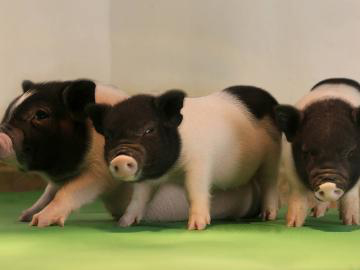 In new studies that demonstrate how quickly genetics science is advancing, researchers used the Crispr gene-editing system to make long-sought alterations in animals, with potential relevance for human health.
In new studies that demonstrate how quickly genetics science is advancing, researchers used the Crispr gene-editing system to make long-sought alterations in animals, with potential relevance for human health.
In one study, scientists created piglets that no longer have active genes for a pig virus, a key step in making their organs suitable for transplant in humans. The pigs, the oldest of which are four months old, will also allow researchers to study the long-term consequences of gene editing in an organism with similarities to humans.
Read the full story in the Wall Street Journal by Amy Dockser Marcus, MBE '17.